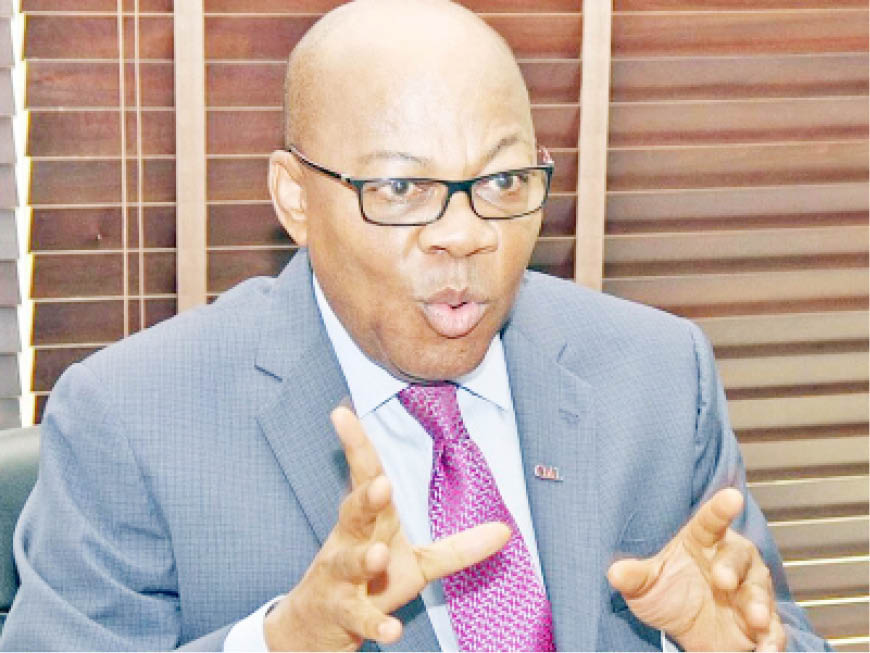Olisa Agbakoba (SAN) is an activist and a former president of the Nigerian Bar Association (NBA). In this interview, he speaks on the ongoing constitutional amendment, the insecurity rocking parts of the country and the alleged medical negligence that led to the death of his client, Peju Ugboma.
What is your take on the ongoing constitutional amendment?
Changing Nigeria’s constitution won’t guarantee a perfect country. There is no guarantee that a new constitution, no matter how perfect, will be complied with by Nigerians and those in power. Let’s not assume that a perfect constitution that we all strive for means that by a flick of the switch everything will be good.
Currently, the constitution, imperfect as it is, is not obeyed. So that is not to say that the constitution we envisage will be obeyed. The answer to it is something we should reflect on.
Part of the problem we face today is the process, because the process is faulty, and Nigerians cannot claim ownership of the constitution. If there is a way to reverse that problem by overhauling the constitution and bringing in a new one, that, I think, is the ideal.
Nigerians and Civil Society Organisations (CSOs) have the option of pushing for either an amendment or a change of the constitution, but the process of changing the constitution may be difficult because traditional and religious institutions may not key into such strategy.
Tactically, the space to engage in amendment is there; let’s take it.
Strategically, the space to overturn the constitution, if it is there, we can generate civil society momentum; then let’s take it, but to be quite honest with you, I don’t see it.
There is no way to expect that the present political class, whether it is APC or PDP, will surrender any iota of power unless we fight and wrestle them to the ground to get it. My point is, is there the energy for that? The constitution has 98 items of power out of which 68 are exclusive to the federal government, while the remaining 30 are shared between the federal and state governments. The challenge is the redistribution of power by reducing exclusive privileges granted to the federal government.
Some say Nigeria is now a failed state. What is the true position given your legal background?
I can only refer to the index that is published on an annual basis by the Freedom House, and it is entitled: “The Index of Fragile States”, and out of about 200 countries, Nigeria is about 14th, so that is the status of the nature of Nigeria’s ranking by, hopefully, independent neutrals who use certain criteria to determine how fragile a state is or can be. That is where Nigeria ranks.
In Nigeria, there is a lot of tension around the question of insecurity. In the North East you have Boko Haram, in the North West is the question of kidnapping and banditry, in the South West, not much of insecurity, but a stir in large scale of unemployment; something like about 70 million Nigerians are technically unemployed or unemployable, so that is a vulnerable and willing mass of people that can be deployed for misbehaviour. In the South East there is the question of IPOB and the sovereignty issues around Biafra. In the North Central there is the herdsmen and farmers’ issue. In the South South, the issue of environmental degradation has been replaced by the world’s most dangerous seas. Nigeria is now number one as the most dangerous area of piracy as rated by the International Maritime Bureau (IMB).
So, this is already a cocktail of insecurity, and it is something that I think the government needs to tackle very seriously; and whether they are doing that effectively has been the subject of public debate. I think the governors of the South who had a meeting recently have shown how serious the issues are if they are calling for state police so that they can better control their security apparatus.
On the whole, one will say that Nigeria is very heavily challenged.
How do we prevent the rampant cases of patients walking into hospitals, but being carried out dead like the case of your client, Peju Ugboma?
I can assure you that anybody can perform surgery and will just be killing people. I have had cases involving a herbalist performing abortion. In one case a patient came and she was killed. The question of compensation does not arise; the issue is to fix the healthcare sector; that is the memory that we can give Peju.
What are the challenges that you hope to surmount to ensure this case succeeds?
Yes, coroner inquest is called when there is a case of an unfortunate death like the one involving Peju, and so the coroner calls all the relevant parties to ask questions of the doctors, of the family and to say what happened, and at the end of the inquest the coroner makes a verdict. Inquest simply means hearing. We have gone to the coroner inquest to say that in the circumstances of this case where Peju walked into a hospital on an elective surgery; mark the word “elective”; meaning that she had a choice to do it. What I have read shows to me that the hospital has a very strong case to answer because they had about two weeks to run Peju through the preparation for the surgery. They would have noticed her rare blood type, they ought to know that this type of surgery may result in loss of blood and there would be a blood bank, not the case where they were running helter-skelter when they needed it. They would have known that they needed it. They would have known that they needed a CT scan. How would a hospital that calls itself a specialist hospital tell the family that, “We don’t have a CT scan,” and had to go to another hospital. Why are you a specialist hospital? These are all the issues we bring before the coroner and request him to return a verdict of medical malpractice against the hospital.
So, we are requesting from the agencies that deal with inspection and monitoring in hospitals the temporary closure of the hospital pending investigations on grounds that the health law of Lagos State has been violated. They did not have the requisite instruments to carry out a surgery. When the surgery was over, they just disappeared; which is not good. If the doctors were on ground, maybe she would still be alive.
How can you have such an operation and the next thing is to disappear. This should be a lesson to people who call themselves surgeons. It is like lawyers; we are bound by ethical standards. If we make mistakes then we get punished. Our task here is to ensure that the hospital and the surgeons that conducted the operation should be punished if found to be negligent. I don’t know if anyone in Lagos has ever heard that a hospital was closed. Personally, I have not. It is so easy to open a hospital, but who checks all these?
Where there is established medical malpractice what penalties result?
It depends on the type of medical malpractice. The legal penalty involves a lot of agencies; for instance the Medical and Dental Disciplinary Council of Nigeria (MDDCN) reviews the matter and comes to a decision. There are several things they can do. The most serious of these is to strike out the body responsible for monitoring and inspecting medical facilities. There is an agency that licenses hospitals and monitors their equipment. So, if you say that you perform this type of surgery, they will inspect the equipment. We are asking for a temporary closure of the hospital pending the outcome of investigations. At the end of it all, we would now launch a lawsuit. What we want to have first are various engagements with various agencies that are relevant to the discussion, including the Lagos State House of Assembly.
From the history of medical negligence, cases that have been prosecuted in Nigeria, normally end with the suspension of the affected doctors and they also cover up for themselves. How can we overcome that challenge in this instance?
We hope that all the processes will be transparent, fair and they can see the evidence. We still need the institution to see the evidence. Despite the corrupt system that we run, we are hoping that the review and conclusion would be that something went unhealthy.
Is your law firm handling the case free of charge?
Yes; we are handling the case pro bono. There are about nine lawyers in this matter, including Boma Ozobia. What we want to see in memory of the deceased is that such should never happen again. The Lagos State healthcare laws are so lax. We want to use this occasion to move for a new healthcare legislation.

 Join Daily Trust WhatsApp Community For Quick Access To News and Happenings Around You.
Join Daily Trust WhatsApp Community For Quick Access To News and Happenings Around You.


